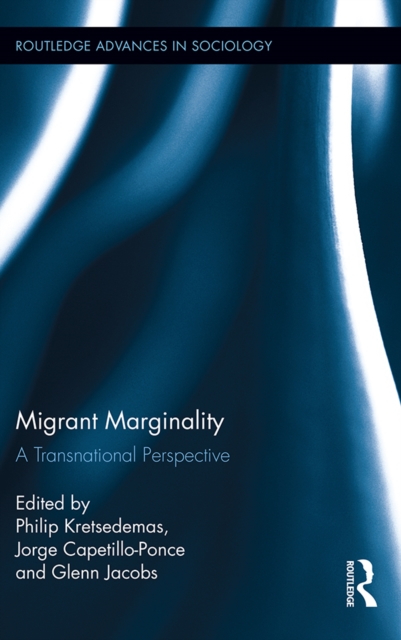
Migrant Marginality : A Transnational Perspective PDF
Edited by Philip Kretsedemas, Jorge Capetillo-Ponce, Glenn Jacobs
Part of the Routledge Advances in Sociology series
Description
This edited book uses migrant marginality to problematize several different aspects of global migration.
It examines how many different societies have defined their national identities, cultural values and terms of political membership through (and in opposition to) constructions of migrants and migration.
The book includes case studies from Western and Eastern Europe, North America and the Caribbean.
It is organized into thematic sections that illustrate how different aspects of migrant marginality have unfolded across several national contexts.
The first section of the book examines the limitations of multicultural policies that have been used to incorporate migrants into the host society.
The second section examines anti-immigrant discourses and get-tough enforcement practices that are geared toward excluding and removing criminalized “aliensâ€.
The third section examines some of the gendered dimensions of migrant marginality.
The fourth section examines the way that racially marginalized populations have engaged the politics of immigration, constructing themselves as either migrants or natives.
The book offers researchers, policy makers and students an appreciation for the various policy concerns, ethical dilemmas and political and cultural antagonisms that must be engaged in order to properly understand the problem of migrant marginality.
Information
-
Download - Immediately Available
- Format:PDF
- Pages:374 pages, 18 Tables, black and white; 3 Line drawings, black and white; 3 Illustrations, black and
- Publisher:Taylor & Francis Ltd
- Publication Date:15/08/2013
- Category:
- ISBN:9781135921538
Information
-
Download - Immediately Available
- Format:PDF
- Pages:374 pages, 18 Tables, black and white; 3 Line drawings, black and white; 3 Illustrations, black and
- Publisher:Taylor & Francis Ltd
- Publication Date:15/08/2013
- Category:
- ISBN:9781135921538










